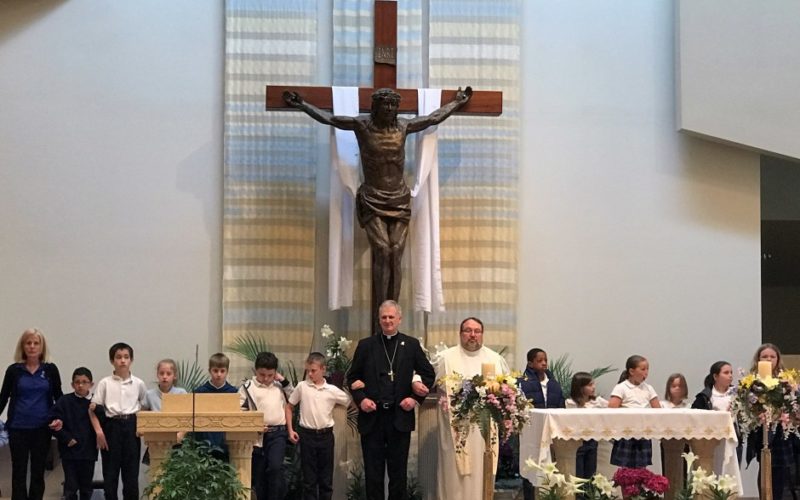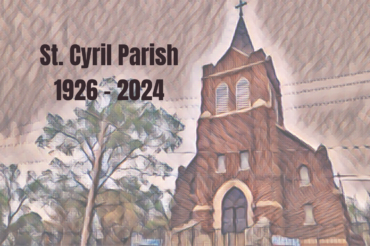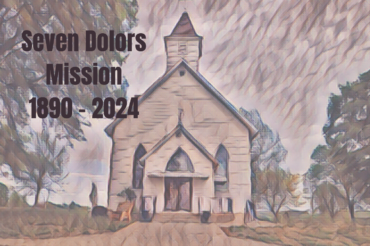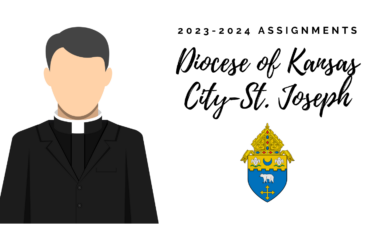Homily: Annual Day of Prayer for Healing
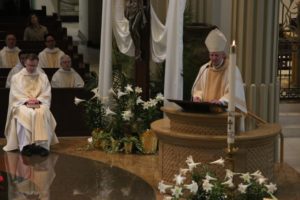 This Day of Prayer for Healing falls within the Easter Season and it was only last week that we celebrated Easter Sunday. Yet, for all that, the words that have echoed in my heart these days have been those that we heard on Good Friday, from Psalm 22: “My God, My God, why have you abandoned me?”
This Day of Prayer for Healing falls within the Easter Season and it was only last week that we celebrated Easter Sunday. Yet, for all that, the words that have echoed in my heart these days have been those that we heard on Good Friday, from Psalm 22: “My God, My God, why have you abandoned me?”
These words are recorded by both St. Matthew and St. Mark as coming from the lips of Jesus as he hung, dying in agony on the cross.
As a child, I was troubled by these words—or rather, not by the words so much as who was saying them—Jesus. How could Jesus utter these words to his Father? It did not make sense. It is the cry of desperation.
I’m not the only one who has wondered about these words on Jesus’ lips. Theologians have attempted down through the centuries to understand the meaning of Jesus quoting this psalm at that moment, when he is stripped, humiliated, abandoned, bleeding, crucified, dying.
These are some of the most disturbing words in the Bible . . . and I’m glad they are there. My sense is that Jesus at that moment was giving voice to all those who, down through the ages, would be the innocent victims of evil. All those who would fall into the hands of others who would abuse and rob and hurt for some advantage or pleasure, or simply out of malice. In that moment, Jesus gave voice to the prayer of those who would be stripped and humiliated and harmed. In that moment, he gave voice to a prayer for those who would be unable to pray because of their wounds. In that moment, he gave voice to a prayer for those who would be unable to pray because even their faith would be damaged.
As we gather here and across the diocese today, I would suggest that we pray in this way too. Let us pray for those who have been wounded, for those who, perhaps, find it difficult or impossible to pray. Let us give voice to prayer for them, in the way Jesus did and does. Jesus so identified with them and their wounds that he took them on himself and gave voice to their anguish: “My God, My God, why have you abandoned me?”
So, let us pray for those who have been abused, especially those who were sexually abused as children, as well as their family and others close to them; let us pray for the abusers; let us pray for the innocent people who have been harmed by the collateral damage of abuse; and let us pray for the most innocent and vulnerable among us.
These are not the only words from Good Friday that we should recall. There are also the words from the Prophet Isaiah: “By his wounds you were healed.” Is 53:5
It sounds like a strange paradox, to find healing in someone else’s wounds. Of course, the one Isaiah is referring to here is Jesus, the suffering servant. Jesus’ wounds are God’s wounds given at the hands of those he created. His wounds heal.
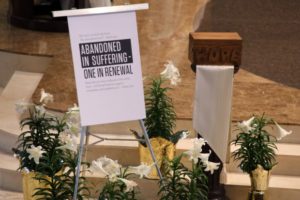 I mention this because in addition to prayer, we all must realize that there is a healing that only Jesus can bring. For all the counselling and therapy and time that passes, which do help bring some healing, there are wounds that are so deep and so profound, which touch the soul, that only the Divine Physician can heal them.
I mention this because in addition to prayer, we all must realize that there is a healing that only Jesus can bring. For all the counselling and therapy and time that passes, which do help bring some healing, there are wounds that are so deep and so profound, which touch the soul, that only the Divine Physician can heal them.
I would suggest that he heals others wounds by his wounds. Just as he prayed on the cross for those who would unjustly suffer, so he heals through the wounds he received on the cross.
The mystery of this strange remedy can only be partially glimpsed by realizing that Jesus’ wounds stand simultaneously for the sins of the world that he absorbed and the infinite love of God that overcame that evil.
For those who have been sexually abused as children, and for anyone who has been the victim of evil, Jesus enters the poison of that wound and takes it to himself so that you do not stand alone, and he shares with you his benevolent, compassionate love, so that you stand as a survivor with him. Your wounds become his, and his become yours.
We don’t often think of Jesus as a victim-survivor do we? But, that is what we celebrated last week with Easter. He was the innocent lamb, led to the slaughter for our sins as a victim, but “survived” and even more, was “victor.”
Jesus’ desire is that all those who are victims not only survive, but are victors with him. His love heals wounds and makes them in the light of God’s victory, a type of trophy that says evil does not win. God’s love wins. And it wins in us.
Isn’t this what St. Paul is getting at in the reading from Romans we heard today?
“We know that all things work for good for those who love God, who are called according to his purpose.”
For those who have suffered evil and who wonder and ask God, “Why?” St. Paul’s words are only an allusion to something greater that is at work in a plan we cannot see now. God asks us to trust that He enters our wounds and our suffering and does not leave us there. His victory is at work in us too and will be revealed when all things are brought to light.
This past weekend, I was at an event here in Kansas City that honored Bishop Robert Barron, who is a well-known speaker and involved in the media.
At one point, he pointed out two things that are mentioned when Jesus appears to his disciples after his resurrection. If you notice, the first thing is that he shows them his wounds; the second thing is that he greets them with the greeting, “Peace.” He went on to say that these two always go together: the wounds and peace.
The wounds will remain with Jesus for eternity and they are a sign of God entering our evil and in love, taking it on himself to save us. And yet, God is not angry, he assures us that we are reconciled by his forgiving love and now can receive the gift of peace. Our lives and our salvation lie between these two things: his wounds and his peace.
May we continue to pray with the perseverance and faith of the widow mentioned in the Gospel for today’s Mass for all those who are wounded, and may we never be in doubt that Jesus can heal all wounds, and make any victim, not only a survivor, but a victor.
Lord, forgive us. Lord, heal us. Lord, save us. Amen.
— Bishop James V. Johnston, Jr.
Day of Prayer, April 26, 2017

